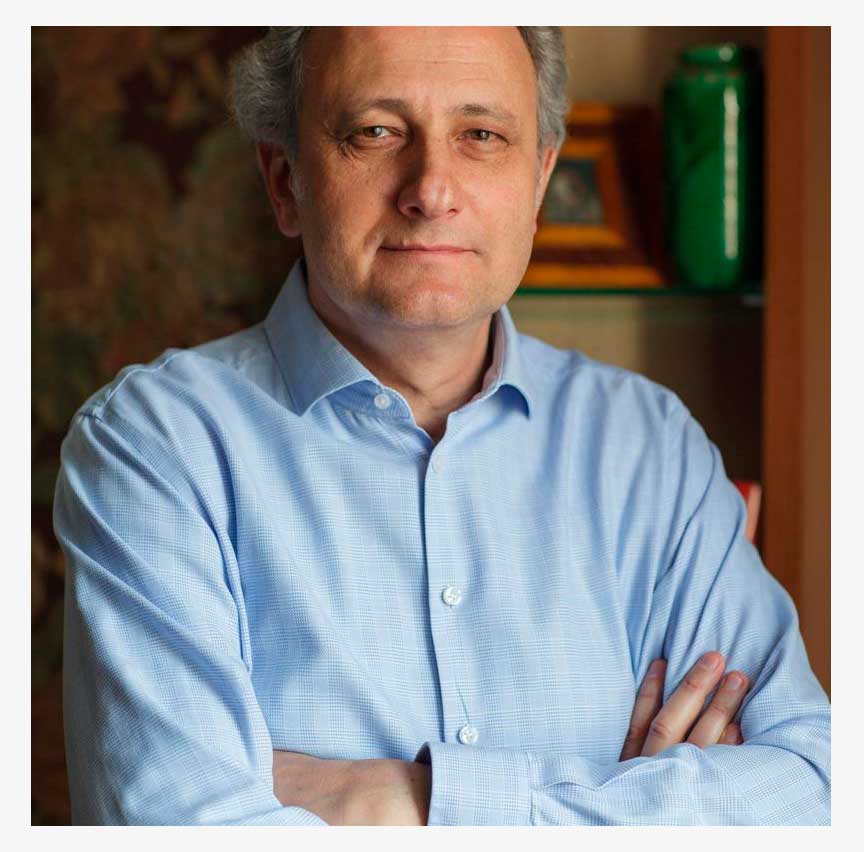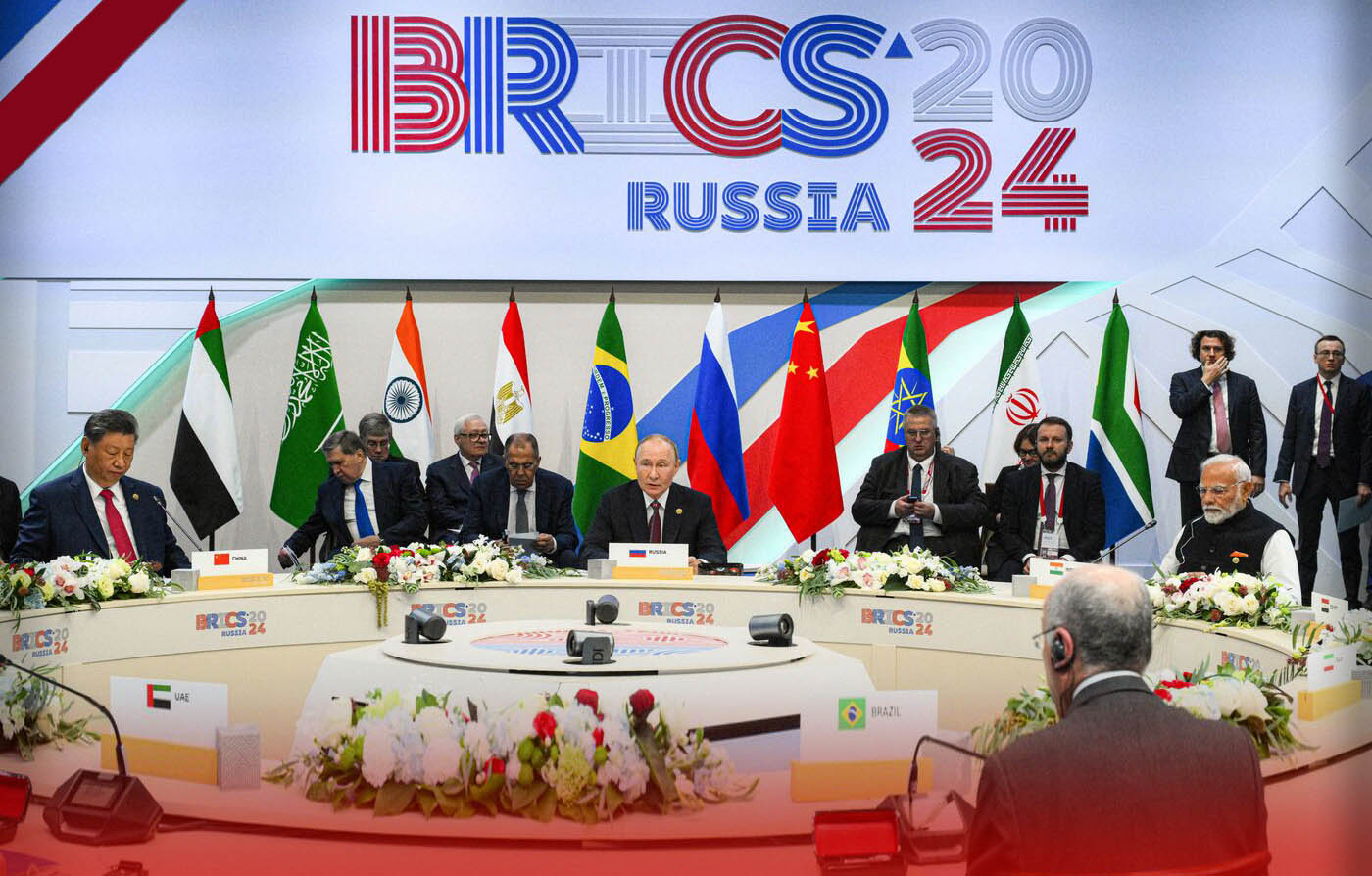 The most important professional quality of a journalist is the ability to ask childlike questions, but not just in the form of "Why was all this necessary?", but with specific reasoning, where common sense and formal logic are present. In recent years, rare examples of such professional work, free from eulogies to the great helmsman, have been demonstrated by the long-time correspondent of the BBC in Moscow, Steve Rosenberg. Steve's question, according to the transcript published on the Kremlin's website, sounded like this (in abridged form):
The most important professional quality of a journalist is the ability to ask childlike questions, but not just in the form of "Why was all this necessary?", but with specific reasoning, where common sense and formal logic are present. In recent years, rare examples of such professional work, free from eulogies to the great helmsman, have been demonstrated by the long-time correspondent of the BBC in Moscow, Steve Rosenberg. Steve's question, according to the transcript published on the Kremlin's website, sounded like this (in abridged form):
"...I read the final BRICS declaration, and it talks about the need for global and regional stability, security, and a just world... But how does all this relate to your actions over the past two and a half years, with the invasion of Russian troops into Ukraine? Where is the justice, stability, and security, including the security of Russia? Because before the start of the special military operation, there were no drone attacks on Russian territory, no shelling of Russian cities, no foreign troops occupying Russian territory — this did not exist..."
The question is clear — if there had been no "special operation," Russians would have lived in safety in the literal, physical, if not physiological sense of the word, and no one would have thought of attacking them. As for prosperity: it turns out that Russia has so much money for volunteers and contractors that it could have built, for example, one of the world's best healthcare systems, and raised the salaries of doctors, teachers, university professors, and scientists several times over. And at the same time, make a technological breakthrough — in the peaceful sphere, of course.
All of the above would have placed Russia high in the hierarchy of not developing, but developed economies. It would be respected for its soft power, attractiveness for investments, development of human capital, education, and healthcare sectors, and not feared because it asserts itself through military power and nuclear weapons.
Putin, judging by his response, has a completely different logic — the logic of an autocrat approximately from the 1920s-1950s. Quote:
"...You mentioned drone strikes and so on. Yes, this did not exist, but there was a much worse situation. The situation was that our constant and persistent proposals to establish contacts and relations with Western countries were always pointed to their place... And this place would ultimately lead to Russia sliding into the category of secondary states, which perform exclusively the function of raw material appendages with the loss of sovereignty to a known extent and in large volumes. And Russia in such a capacity cannot only develop, it cannot exist..."

In other words, when shells are not falling on the heads of people, citizens of Russia, this is the "worst" situation: let them fall, but "sovereignty" is preserved. When Russian citizens are toxic to a significant part of the world — this is good because we show them all "Kuzma's mother"! When inflation unfolds in full due to incredible military expenses — this is not a problem, but we make rockets. When crime grows among people returning from the front, who previously sat in prison for committing real, not imaginary crimes — this should not worry anyone because they are "heroes," the "new elite." When eggs, butter, anesthesia in hospitals, or medicines for cancer patients disappear — these are trifles compared to our "millennial history," where there are reasons for genuine pride, for example, the oprichnina or Stalinism.
The physical, and sometimes food, and sometimes mental security of Russians is under threat, and a permanent threat at that. There is a corruption of the morals and consciousness of Russians, their perceptions of the world. There is a normalization and routinization of violence, which is in no way consistent with security, stability, and justice. Russia becomes a pariah and stands in line — if judged by partnership agreements and voting in the UN — with countries like North Korea, Iran, Eritrea. Agreements on cooperation in space are signed with Algeria, and on the non-proliferation of weapons in the same space — with Burkina Faso. The Russian national football team is looking for partners to play with at least someone, and matches with Vietnam, Brunei, and Syria are considered a big celebration of life. Not with Brazil, Germany, Spain, Italy, France, England — with Syria!
Moreover, all this did not correspond at all to the demands of the Russians themselves. According to the "Levada Center," in 2021, only 12 percent of respondents believed that the main efforts of the state should be directed at increasing military power, 83 percent thought that the authorities should focus on the well-being of the population. 63 percent of respondents from the same "Levada Center" had a good attitude towards Western countries, a quarter — a bad one. However, this survey was conducted before the start of active pro-war hysteria, in the summer of 2021. A third of the respondents had relatives in Ukraine. Almost 83 percent of respondents from the "Levada Center" in October 2021 "mostly good" or "very good" attitude towards Ukrainians.
So is Russia now — as a result of what has been done in recent years — an absolutely "secondary" power? Pro-government propagandists claim: the Kazan BRICS summit showed that the country is not isolated and attractive. But was even one decision made at this summit that had truly substantive meaning? The fight against the dollar, as stated by the head of the BRICS bank Dilma Rousseff, is the main goal of the organization. Isn't this too small for a structure claiming to build a "more just" world order? And is it a world order — or perhaps rather a world disorder, balancing on the brink of nuclear war and involving countries and peoples in bloody conflicts in different parts of the globe.
The Soviet Union was not a secondary power. However, it failed and collapsed under the burden of gigantic military expenses, great power ambitions, unnecessary war, construction gigantomania, and an inefficient economy. One drop in oil prices — and the colossus on clay feet, bristling with nuclear warheads, could exist, and even then not for long, solely thanks to external loans. Putin's Russia is saved by a market economy, but otherwise, it follows in the footsteps of the USSR, lacking its authority and having severed all relations with the West, something the post-Stalin Soviet Union never did even in the worst years.
The key problem of the Putin system is that it does not value the individual. His rights, recorded in the Constitution, are trampled. His life and safety, the very infrastructure of life, its order, are under constant threat. But Putin is more concerned with an abstractly understood "sovereignty," which, naturally, no one has ever encroached upon in post-Soviet history. He is worried about the "destructive neoliberal" West, which gave Russia everything — from investments to technologies.
What is more important — human life or an abstract understanding of "sovereignty"? It is remembered that the current Minister of Defense Andrey Belousov at the St. Petersburg Economic Forum in 2023 argued that, for example, the Netherlands, with all their level of development, is not a sovereign country. Like, do you want it like in the Netherlands? Yes, we do, and this will only strengthen stability, security, justice, and thus — sovereignty. Because people will be alive, happy, and respected thanks to belonging to a peacefully developing country. And now hundreds of thousands of people are leaving Putin's Russia — forcedly or by their own will — fleeing from the Kremlin's understanding of sovereignty, from Putin's interpretation of the concept of a "non-secondary power." The country's demographic indicators are deteriorating and will continue to deteriorate, and their improvement in such a paradigm of "sovereignty," when gerontocrats decide for the young not only how to live but also how and for what to "heroically" die, is decidedly impossible. A country with such demographics is secondary. Such an understanding of "protecting sovereignty" makes Russia "child-free": potential fathers go to the trenches. But sometimes children also become "free" from parents.
Putin essentially said that without the "special operation," Russia would have been reduced to the role of a "raw material appendage." He has been in power for more than twenty years. Who prevented him during this time — with the same Western investments and technologies, with an unimaginably favorable oil and gas environment — not only to talk for two decades about "diversifying the economy," but to do it. From the fact that children and adults "weave camouflage nets" or launch drones, Russia does not become a primary power. It degrades and becomes archaic. Alexei Kosygin and Leonid Brezhnev were turning the USSR, living on petrodollars, into a "raw material appendage of the West." Putin's Russia has not escaped this trap, but now it has become a raw material appendage of China. And instead of diversifying the economy, they engaged in state-spending-encouraged "production of finished metal products," that is, armaments. In economic science, such expenses are not accidentally called "unproductive." And "productive" are those that go not to destruction, but to the development of human capital, for example, healthcare and education. Education not according to Medinsky, of course. Such an educational system is aimed solely at justifying "sovereignty" in the Kremlin way, in which there is no place for a freely developing individual in true safety.
So Steve Rosenberg with his question hit the mark. And received a frank, too frank answer: the preservation of power and the self-assertion of Leviathan are more important than the life of an individual and his rights.
*Andrey Kolesnikov is considered a "foreign agent" by the Ministry of Justice of the Russian Federation.
Photo: Alexey Danichev / brics-russia2024.ru. Kazan, Russia.